- Home
- James A. Michener
Poland: A Novel Page 13
Poland: A Novel Read online
Page 13
On the sixth of July the armies sweated as each tried to outflank the other. On the seventh a heavy rain impeded everyone, but on the eighth the ground dried and it looked for a while as if the Teutonic Knights were going to charge, but Jagiello deftly withdrew to such a distance that the German horses would have been exhausted by the time they reached the Poles.
On July ninth the armies had moved so close together that engagement on the next day was inescapable, and late that afternoon the two generals made characteristic moves. The Grand Master brought his entire force onto open ground so that when dawn came their superior horsemen could sweep with terrible fury at the larger but less skilled body of the Polish-Lithuanian troops. And Jagiello, appreciating the superiority of the Germans, positioned his vast army deep among the trees, where the first charge of Germans could not reach them, for he intended to send his men forth when and how he wished.
As night fell each general prayed, and Von Jungingen asked his aides: ‘Is it true that no Tatars joined them?’ and his spies assured him: ‘A chieftain named Tughril was supposed to come, but as always, he deserted at the last moment,’ and Von Jungingen said: ‘I’m glad. I don’t want to face those little fleas. They confuse a battle.’
As midnight neared and the fatal day—10 July 1410—began, one could have imagined all Europe holding its breath, for this battle had been so long coming that its tremendous significance was widely understood. And then one of those curious twists of history occurred: the Teutonic Knights positioned their headquarters near the little village of Grunwald, while some three miles distant the Polish commanders slept not in but near to the equally small village of Stebark (Tannenberg), yet in subsequent history the Poles would call this the Battle of Grunwald, after the Teutonic headquarters, while the Germans would name it Tannenberg, after the Polish quarters, but both names would echo with tales of heroism, feats of honor, and dead innumerable.
Since the two villages lay far to the north, and since it was midsummer, the sun rose at about four in the morning, so at half after three Pawel of Bukowo was awakened and, with his serf Janko, was directed to help erect a tented chapel, where shortly after dawn King Jagiello, Witold of the Lithuanians and the other commanders reported for morning devotions.
A slight, misting rain obscured the proposed battlefield and assisted the warriors in that it kept the dust down, but as the commanders entered the chapel they could not keep from casting furtive glances at the terrain, calculating where and how their troops would move on this fateful day.
All the commanders were present except wild Tughril of the Tatars; as a pagan, he felt no need of Christian ritual, but when Jagiello sent for him particularly, dispatching Pawel to relay his request, the tough little horseman shrugged his shoulders, looked this way and that with his wandering eye, and said: ‘Why not? On a day like this a man needs all the luck he can find,’ and he marched to the chapel, where Jagiello greeted him with an embrace, standing him in the forefront.
When the priest finished the words of the Mass, ending with Christ’s blessing on this great venture, Jagiello spoke: ‘Brothers, we move this day to end the tyranny which has oppressed our lands. The Teutonic Knights will come against us with the blessing of the church and the cross of Christ upon their bosoms, but they come also clothed in lies. We ride forth with truth as our banner and the deep love of Jesus Christ as our shield. To freedom! To victory!’
Kazimir of Gorka supposed that at the closing of the Mass, Jagiello would bring his cavalry out from the trees and line them up for battle, but the king did nothing of the sort. He talked with his captains, joking with those who seemed nervous, and when Kazimir asked: ‘When do we move into battle position?’ he replied with a broad smile: ‘We don’t.’
Jagiello was sixty years old that day, senior to any of his commanders or to any of the enemy leaders, and he had devised a plan which would give him every possible advantage, for his inescapable disadvantages were numerous and could destroy him if he made mistakes or wasted what power he had. The Poles had provided 18,000 knights, 12,000 retainers and 4,000 foot soldiers, to which must be added 11,000 Lithuanians and 1,100 Tatars, for a grand total of about 46,100 troops. But only a precious few were heavy cavalry; most of the Lithuanians were armed with clubs; he had only sixteen cannon; and in almost every respect the allied equipment was inferior to that of the German.
The Teutonic Knights could assemble on this day 21,000 superb heavy cavalrymen, 6,000 massively armed infantry, 5,000 servants trained in battle and armed better than most of the Lithuanians, and about one hundred excellent cannon capable of throwing with tremendous force balls larger than a man’s head. In addition, the Germans had the best field leaders in the world, men tested in many battles: Ulrich von Jungingen as Grand Master; Frederick von Wallenrode as Grand Marshal; Kuno von Lichtenstein, one of the finest swordsmen of the century, as Grand Commander; and Albrecht von Schwarzenberg, a marshal serving as Commander of Supply. Each of these men wore a suit of full armor, the chain-link kind and not the massive plate favored by the Poles; each rode a huge horse; each carried a powerful lance which a young knight would not have been able to heft let alone handle; and each wore as a kind of special assurance from God the huge black cross upon the front of his white tunic. Most important, each Teutonic Knight approached battle with the knowledge that his Order had known one smashing victory after another since moving into Prussia.
Outnumbered in bodies, 46,100 Poles and allies to 32,000 Germans, the knights were vastly superior in armor, in horses, in experience and in battlefield leadership. This was to be one of the decisive battles of the world, an immense clash of arms which would determine the history of the Baltic and the destiny of two emerging nations, Poland and Lithuania.
But still King Jagiello did nothing. Five o’clock came and the massed Teutonic Knights could be seen waiting on the horizon, but no Poles opposed them. At six o’clock, when the sun was driving away the mists and making the summer fields oppressively hot, three Polish champions, the heart of the army, came to Kazimir of Gorka, asking him to intercede with them, and together they presented themselves to the king: Zawisza Czarny, Black Zawisza, known on many battlefields as the premier knight of the east; Jan Zyzka, the huge Czech who wielded the heaviest and deadliest sword; Firczyk of Plock, with the massive iron ball at the end of its heavy link chain.
‘Your Highness,’ Zyzka said, ‘we grow impatient.’
‘But I do not,’ the king replied, and then he revealed his strategy: ‘Let them wait there in the hot sun. Let them wait all morning while we stay here among the cool trees. When they’re exhausted by the heat and lack in water, only then do we engage them in battle.’
The three powerful champions were not entirely pleased with this strategy, but when the sun grew hotter at six and extremely hot at seven, they began to see the wisdom of their king’s plan, for they remained under the trees where cool breezes were blowing.
At half after eight, when the Teutonic Knights were dripping with sweat, Grand Master von Jungingen engaged in a superb maneuver: he detached two of his finest knights, handed each a flowing banner and a handsome long sword, and thus armed, the two men, one showing a black eagle against a golden ground, the other a red griffon rising from a white field, cantered their horses easily across the intervening ground toward where the Poles waited amid the trees.
When their horses rested, about twenty yards from the Poles, one of the heralds cried in a loud voice: ‘Lithuanians and Poles, Dukes Witold and Jagiello, if you are afraid to come out and fight, our Grand Master sends you these additional weapons.’ And with contempt the heralds threw their swords point-down into the earth, where they quivered. ‘Also, you cowardly ones, if you feel you require more room for your maneuvers, the Grand Master says that he will now withdraw our troops one mile to aid you.’ And at a signal from the other herald, the Teutonic Knights on the distant field did turn about and retreat a full mile.
This insult enraged warriors like Black Zawisza an
d Jan Zyzka, but Jagiello remained unperturbed and sent one of his aides to recover the swords. Brandishing one, he said: ‘I accept both your swords and your choice of battleground, but the outcome of this day I entrust to the will of God.’
At this challenge the heralds withdrew, gave a signal indicating the failure of their mission, and wheeled their horses to rejoin the monstrous wave of their fellow knights as the latter prepared the charge which would rout the Poles and Lithuanians from their forest and destroy them.
Now Jagiello was ready, and with maneuvers as graceful as the unfolding of a petaled flower, the various groups of knights moved into their assigned positions, each group edging forward to be first in the fray. Trumpets sounded. Cheers rose. And the allied forces waited for the savage charge of the Germans, who came over a slight rise waving their banners and chanting ‘Christ has risen’ as they bore down on the pagans.
In that first moment of battle disaster overtook Jagiello’s troops, for with his customary skill the Grand Master had detected where the major weakness in Jagiello’s dispositions would probably be, and he had dispatched his foremost cavalry, under the leadership of Kuno von Lichtenstein, crashing into that spot, where the eleven hundred Tatars with their light swift horses abutted the Lithuanians with their light armor.
When Tughril and his lieutenants from the steppes looked up the hill and saw this descending array of giant horses and equally giant Germans—four Germans to every Tatar—he made the only rational decision. He fled. Wheeling his horse before the Germans could get to him, he led his entire complement in undisciplined, chaotic flight. Away from the protecting trees and out onto the gently rolling fields the Tatars galloped, hoping that their speed would save them from the monstrous Germans, and any Tatar who fell even two horse lengths behind was cut down.
Cheering and shouting battle cries, the Teutonic Knights swept on, routing the men from Kiev completely. For more than five miles the chase continued, and whereas more than fifty Tatars were killed, not one Teutonic Knight was even badly wounded. It was as complete a victory as the Germans would gain that day, and it started their part of the battle with a burst of glory.
Of course, when the sweating knights returned from their rout of the Tatars, they were spread out and some were burdened with spoils lifted from dead bodies, and in this careless formation they passed where Grand Duke Witold waited with a contingent of his best Lithuanians, and suddenly the knights were engaged in an entirely different kind of battle.
Now men of roughly comparable strength engaged one another, and the incessant clash of swords was like the rolling of thunder across a field. Lance countered lance, great two-handed swords clove enemies from neck to hip, horses whinnied and went down, throwing their masters under the hoofs of other horses, and a wild, confused and terrible hand battle raged for nearly half an hour, producing no victor. When Kuno von Lichtenstein fought clear and was able to rejoin the Teutonic commanders, he gasped: The Tatars proved craven, but those damned Lithuanians have learned to fight.’ When questioned, he said gravely to the Grand Master: ‘Sire, we can afford no more errors this day. It’s going to be fierce battle to the end.’
In the third hour the Germans gained a notable advantage and one which came close to ending the battle altogether, and in their favor, for Marcin, the Chamberlain of Krakow, had been awarded the honor of bearing aloft at the heart of battle a big Polish flag marked with the sign of a white eagle, and when the Germans saw this they supposed, sensibly, that King Jagiello must be nearby, fighting at the head of his troops in the European fashion, not realizing that he had stationed himself atop a small hill well to the rear, in the tactic dictated by Genghis Khan and his inheritors.
With enormous courage and determination, a squadron of German knights crashed into Marcin, wounded him, and cast down his flag. In the average battle this would have signaled the defeat of the army to which the flag belonged, and the Germans so interpreted it, with hundreds of knights rushing to kill the fallen king and disperse his immediate entourage.
But this was not an ordinary battle, and when the flag fell Black Zawisza and a remarkable Polish warrior named Florian of Korytnica rushed forward to defend it. Each Polish nobleman had his own heraldic banner—eagle, bear, hawk, Kazimir of Gorka with his castle—but Florian, who loved battle the way some men love wine, had as his insignia a twisted length of human gut, testifying to the fact that even in the remotest part of his intestines, he had never known fear. At his side galloped the mighty Jan Zyzka, and these men not only saved their flag, they drove back the crashing knights and used this event not as an excuse to surrender, as the Germans had anticipated, but to renew the battle.
It was now two in the afternoon, the hottest time of that long, brutal day, and Jagiello’s strategy began to show results. The German knights, among the bravest men in the world, had been sweating in the saddle since dawn and some were beginning to tire, especially those who had galloped after the fleeing Tatars. And it was at this precise time that Jagiello released a contingent of his knights who had not yet seen battle, and when these rested warriors joined the fray, the line of German knights was slowly driven back.
But this was exactly what the Grand Master had planned, and waiting until the Poles were extended, he threw in a huge reserve of his own, and these powerful men began to smash the Poles.
The fight was now a general melee, single sword against single sword, one horseman galloping after another and cutting him down from the rear. Like the echo of a vast storm, the sounds of battle rose and fell over the fields of Tannenberg-Grunwald, and the dead fell like wheat stalks cut down by summer hail.
In the individual fighting, the advantage seemed to lie with the Germans, for at this kind of battle they were supreme, but Siegfried von Eschl, perhaps the most astute of the Teutonic Knights, did not entirely like what he saw, and he reported to the Grand Master: ‘I have ridden everywhere, Sire, and I assure you, the Polish and Lithuanian foot soldiers have not yet been released. Sire, they are lurking somewhere. We must smell them out.’
‘Good Siegfried, look at the battle. We are winning. At sunset the rabble will have been driven from the field.’
‘I am afraid, Sire. I am afraid of those damned foot soldiers coming at us from some unexpected quarter.’
Von Eschl, a superb tactician, had good reason to be apprehensive, for in the dense woods near the village of Tannenberg, Janko the peasant from Bukowo and two thousand like him had huddled throughout this steaming, explosive day, uttering not a word on pain of death. There they hid beneath the trees, their clubs and scythes and pikes at ready, and three times Janko deemed it right for them to surge forth and cut at passing knights, but always they were held back.
Now it was almost five in the afternoon, and the Germans sensed that before darkness the outcome of this titanic battle would be known, and although they were tired, with many close to exhaustion, their superiority in physical stature, armament and the strength of their horses began to tell.
As Polish fortunes started perceptibly to wane, Firczyk of Plock became a focus of attention. Standing at the center of a circle, his feet planted wide, with massive swings of his oaklike arms he twirled his heavy iron ball about his head, lowering it a few feet whenever a German came into range and smashing the man apart. Horses, knights, foot soldiers, all felt the crashing of this tremendous weapon, and Firczyk was beginning to rally the faltering Poles with his mighty shouts and indomitable courage, when Siegfried von Eschl came on the scene. He watched for some moments the tactics of the big Pole, then dropped dramatically to the ground and rolled forward in four complete circuits of his body, thus escaping the swing of the deadly ball—and found himself face to face with Firczyk. ‘Page!’ the giant warrior bellowed, but before anyone could come to his aid or he was able to slow his swirling ball, Von Eschl drove at him with a dagger, entered his throat above the chain mail, and brought him crashing to the earth. As soon as the terrible ball fell powerless, other knights swarmed upon the ble
eding Pole and finished him. The tide of the battle had turned definitely in favor of the Germans.
At this perilous moment King Jagiello from his hillside far to the rear flashed his long-awaited signal, and from the woods the Polish peasants began to emerge, walking gingerly at first, then half-running with their pitiful wooden weapons in the air, and finally surging forward with cries they might have used in hunting bear. They constituted a terrible force, a body of men dug out of the earth and determined to protect that earth. On and on they came, their cries growing louder and higher, until like an all-engulfing dust storm they swept into the heart of the battle.
They moved toward the German flanks like a mass of irresistible ants, on and on and on, falling, dying, shattered by Teutonic power, but never stopping. They hacked and stabbed and pierced; with bare hands they grabbed at rearing horses’ hoofs and clutched at wavering knights, and although one mounted knight on a great horse with a long sword could defend himself against eight of the peasants, he could not hold off twenty as they swarmed about him and his horse.
‘God who guides us,’ screamed Kuno of Lichtenstein, ‘free me of these damned flies!’
Siegfried von Eschl, fresh from his victory over Firczyk, studied the behavior of the peasants and noted something which frightened him. Galloping over to where the Grand Master followed the conduct of the battle, he shouted: ‘Sire, do you notice that the peasants are leaving a clear path to their left?’

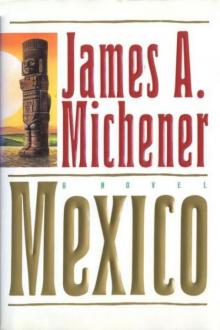 Mexico
Mexico The World Is My Home: A Memoir
The World Is My Home: A Memoir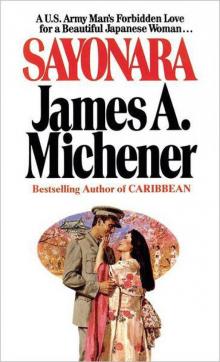 Sayonara
Sayonara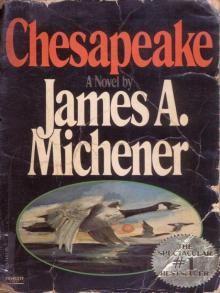 Chesapeake
Chesapeake The Novel
The Novel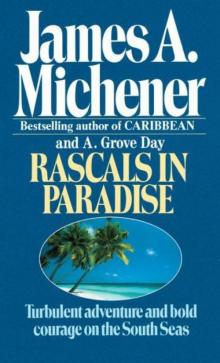 Rascals in Paradise
Rascals in Paradise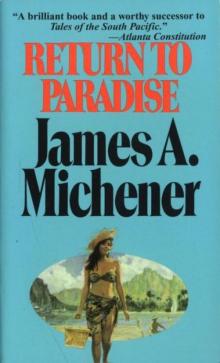 Return to Paradise
Return to Paradise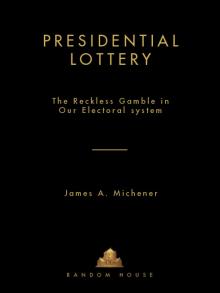 Presidential Lottery: The Reckless Gamble in Our Electoral System
Presidential Lottery: The Reckless Gamble in Our Electoral System The Source
The Source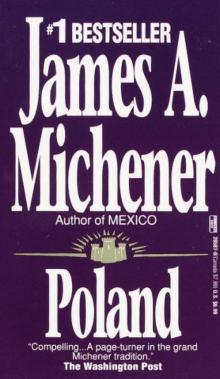 Poland
Poland Space
Space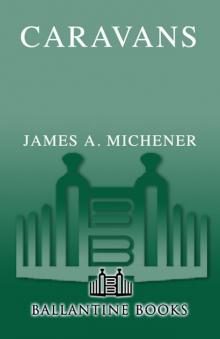 Caravans
Caravans Creatures of the Kingdom: Stories of Animals and Nature
Creatures of the Kingdom: Stories of Animals and Nature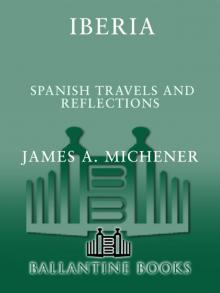 Iberia
Iberia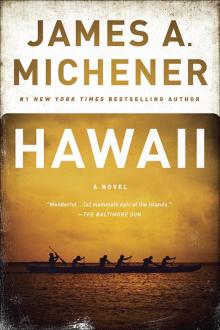 Hawaii
Hawaii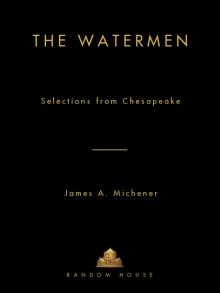 The Watermen: Selections From Chesapeake
The Watermen: Selections From Chesapeake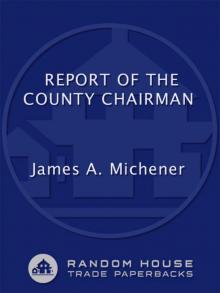 Report of the County Chairman
Report of the County Chairman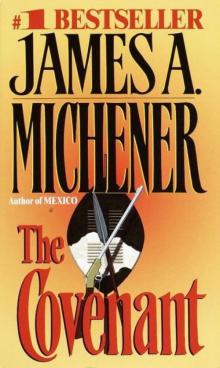 The Covenant
The Covenant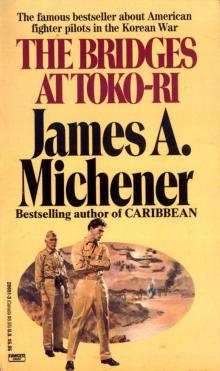 The Bridges at Toko-ri
The Bridges at Toko-ri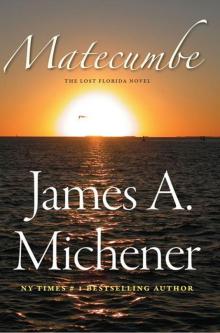 Matecumbe
Matecumbe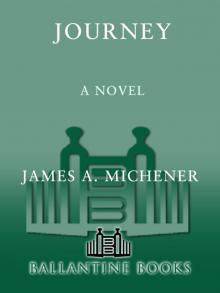 Journey: A Novel
Journey: A Novel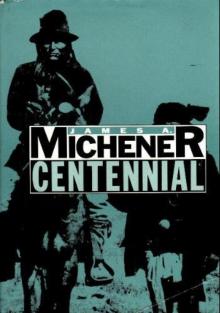 Centennial
Centennial Sports in America
Sports in America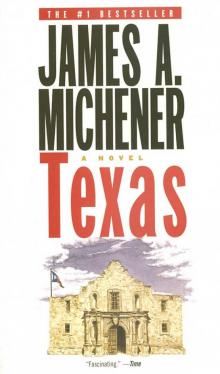 Texas
Texas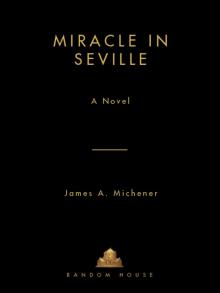 Miracle in Seville
Miracle in Seville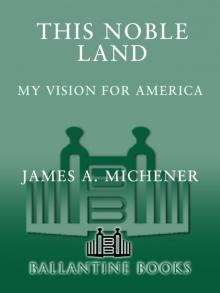 This Noble Land: My Vision for America
This Noble Land: My Vision for America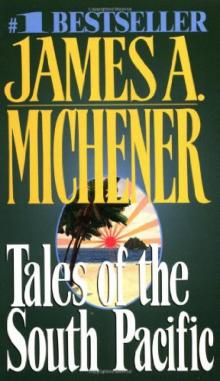 Tales of the South Pacific
Tales of the South Pacific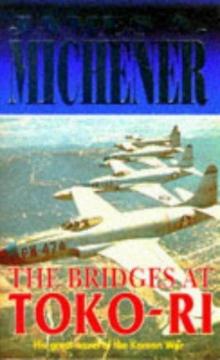 Bridges at Toko-Ri
Bridges at Toko-Ri Space: A Novel
Space: A Novel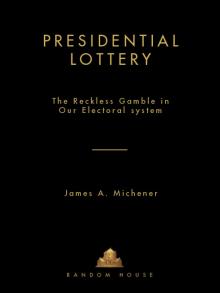 Presidential Lottery
Presidential Lottery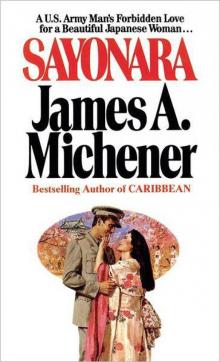 Sayonara: A Novel
Sayonara: A Novel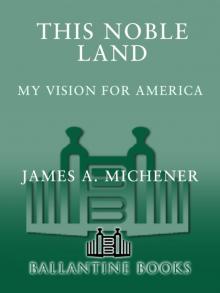 This Noble Land
This Noble Land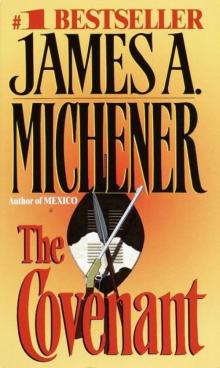 The Covenant: A Novel
The Covenant: A Novel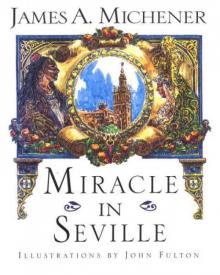 Miracle in Seville: A Novel
Miracle in Seville: A Novel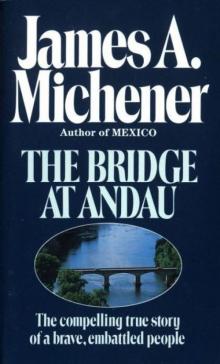 The Bridge at Andau
The Bridge at Andau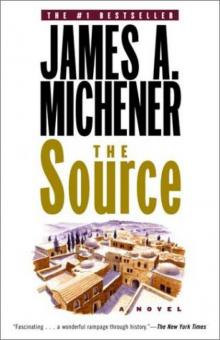 Source
Source The Source: A Novel
The Source: A Novel Journey
Journey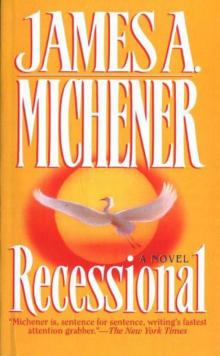 Recessional: A Novel
Recessional: A Novel Legacy: A Novel
Legacy: A Novel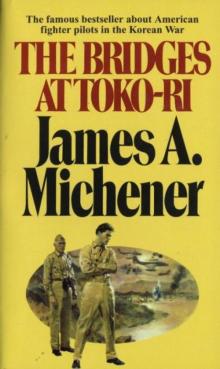 The Bridges at Toko-Ri: A Novel
The Bridges at Toko-Ri: A Novel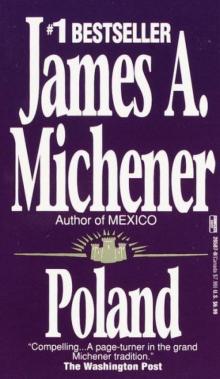 Poland: A Novel
Poland: A Novel